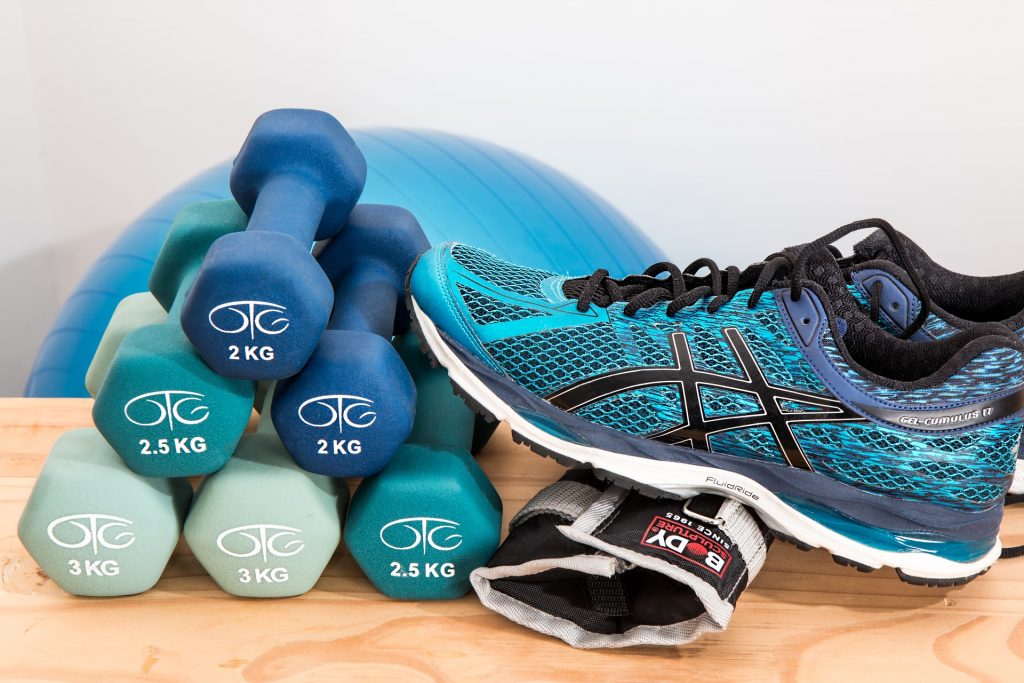If you are strength training, consider these five tips for building muscle and gaining strength while staying healthy.

- Workout smart. The American College of Sports Medicine recommends that healthy adults engage in resistance exercise for all major muscle groups two to three days per week. Some adults prefer to work all muscles on the same day a few days per week, while others would rather exercise more often and divide their resistance training. Regardless of your method, it is important to perform exercises correctly. Excessive weight training, improper form, or unbalanced routines can be counterproductive and even cause harm. It can be helpful to work with an athletic trainer, physical therapist, or personal trainer to establish a safe, effective routine that will help you meet your goals.
- Consume adequate fuel. Your body needs energy to build muscle. Make sure you’re getting enough calories, including pre and post- workout. Try to make the majority of your choices as nutritious as possible—whole grains, lean protein, fruits, vegetables, healthy fats, and low fat dairy.
- Watch the protein. It’s true that athletes need more protein than sedentary people, especially in the initial stages of strength training. However, it may not be as much as you think, and generally does not require expensive supplements. Include foods like lean meats, eggs, beans, nuts, nut butters (like peanut or almond), and dairy products like low fat milk or cottage cheese. Protein shakes and bars can be used for convenience, but it’s often cheaper (and more nutritious) to make your own smoothies and snacks.
- Rest properly. Rest and recovery is an important part of the muscle-building process. Don’t waste your efforts in the gym by skimping on sleep or not eating enough between workouts.
- Be patient. Lasting changes in body weight and composition take time. Any plan or product that promises immediate results is probably a waste of your time and money.
For guidelines and ideas of pre and post-workout fuel, see Nutrition Tips for Athletes.


